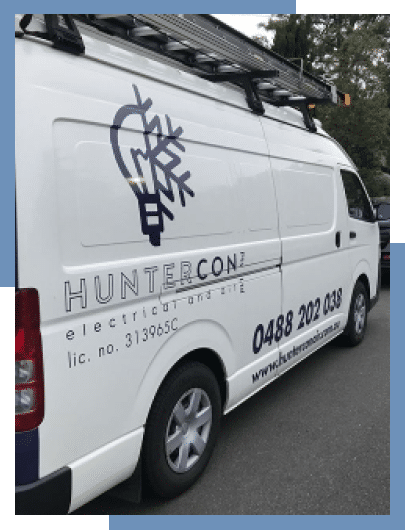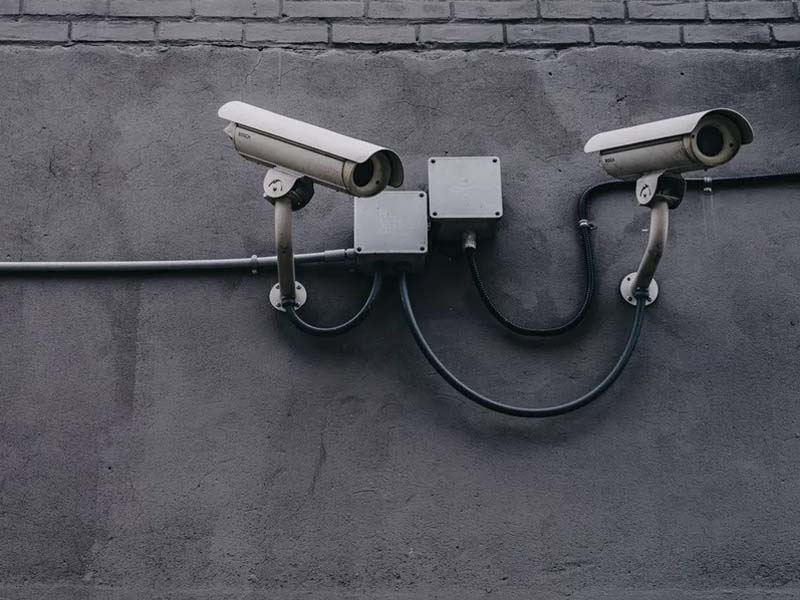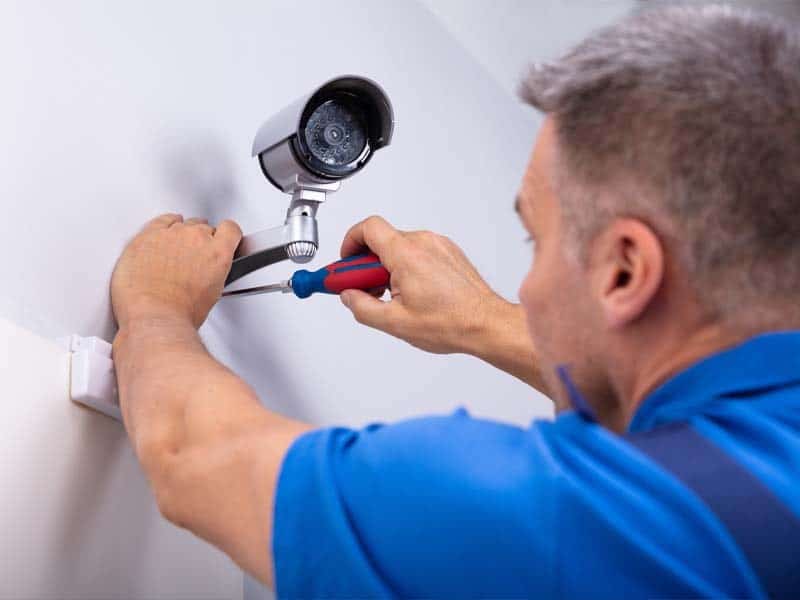State of Art Security Services
Brands We Recommend
Expert Security Services
Nowadays, the need to have security services in a property is undeniable, not only as a defense against the commission of potential crimes but also because current technology allows us to save time and money due to the integration of the devices with smart appliances, thanks to which it is possible, for example, to detect a burning stove and switch it off remotely. That’s just one of the many uses of state-of-the-art devices that exist today.
How do you define a security system?
This type of system can be defined as a set of sensors that are arranged in the form of networks of integrated electronic instruments and connected to a central control panel, and whose purpose is to protect your home or business against probable intruders.
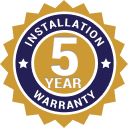
How much do Sydney security services cost?
These days, there are many different types of systems available to residents. These range from simple DIY units to much more sophisticated setups. Home systems vary according to the system type, size as well as the technology involved. Generally, all types will be in the range of $300 to $4,000.
Considering a 130 square metre home, the cost of installing a hardwired system will cost, on average, around $850 to $1,150. Let’s look at the price estimates for different types.
| Type | Cost Range |
|---|---|
| Control Panel Installation and Activation This will include installation and activation. The cost of monitoring averages around $14 to $60 per month. Depending on the company you go with, there might be additional costs, such as activation charges or ongoing maintenance charges. Make sure you know of all these costs beforehand. |
$700 to $1,900 |
| CCTV Surveillance and Equipment The cost of CCTV camera installation will depend on the type of camera you choose.The cost on the right excludes installation charges. Most of these cameras come with additional monthly surveillance charges. |
$250 (monthly charges of $25 to $30) |
| Motion Sensors The cost of motion sensors and detectors on the right is for one unit and excludes the cost of installation. |
$30 to $50 per sensor |
| Key Fobs These are pocket sized hardware that are usually attached to your key ring. You can usually get multiple key fobs. |
$25/each |
| Door and Window Sensors The cost of door and window sensors can vary a lot. The cost will depend on the type of the sensor, the manufacturer and whether it is hardwired or wireless. |
$15 to $60 per sensor |
| Lighting The cost of lighting a home will depend on the brand. They can also run upwards for much more, depending on how complex your lighting system is. |
$25 to $90 per light |
| Security Doors and Screens Their installation can cost according to the type of the door, the materials used for installation as well as the size of the door. There will be an extra cost for the locks used. |
$600 to $1,400 |
| Locks The prices of locks will vary, depending on how complex they are and what material they’re made of. |
$15 to $330 |
| Alarm Systems There are different types of alarms that you can install in your house, such as burglar, fire, smoke and CO2 alarms. The cost of any alarm system will depend on how many are needed in the house. On the right is a range for each unit. The charges for installation will be separate. |
$30 to $50 per unit |
| Hardwired Systems Insulating a hardwired system can vary depending on how far the wires will need to run from the main control panel and how many holes will need to be drilled. In comparison to wireless systems, they are usually more expensive to install. |
$800 to $1,600 |
| Smart Home Options These days, you can find many smart home options, including smart cameras, smart lights and smart doorbells. These are usually connected through a mobile app that allows you to monitor your home from any part of the world. However, they usually have limitations and in certain cases are not very effective. |
$30 to $200 |
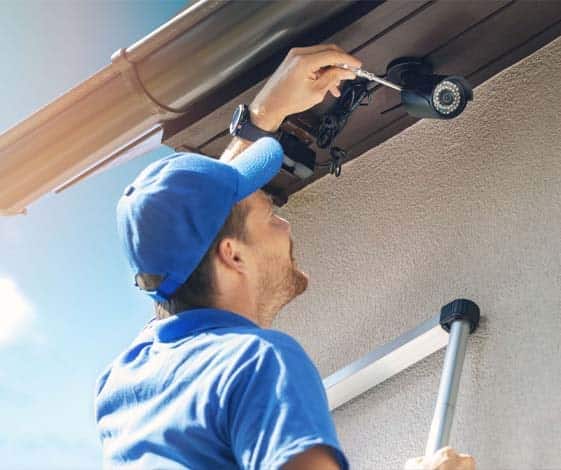
Do you really need security services?
If you want to have the benefits mentioned below, you definitely need this type of system:
- Helps you protect your assets. It helps you protect valuables since once the alarm is activated the police will go immediately to your property.
- Home automation and surveillance. In addition to allowing you to see what is happening in your home remotely, this solution lets you carry out actions that will provide you with greater comfort, in addition to helping you reduce your electric bill, such as turning off lights and appliances as air conditioners.
- Reduce the amount of your insurance policy. Those who have it receive discounts on their home insurance policy.
- Carbon monoxide and fire detection. It can detect these risks even if you can’t. Handling a fire or carbon monoxide leak could prevent damage to your property and, more importantly, save lives.
How long is the installation process?
Installing an alarm system can take as little as 30 minutes and as long as one day. Most of the systems will not take more than 2 hours to set up, however, it does depend on the size of the house that needs to be protected. There can also be occasional glitches in the setup process that can increase the time it takes to install the system. You can save some time if part of the installation is DIY, meaning you could get everything out of the box and packaging in advance, getting everything ready to be installed by the technicians.
You can also shorten the process by making sure you already have all the contact information you’ll need to provide for an emergency. Know who you would like to be called in the event of an emergency and their contact details. Figure out the emergency pass codes and any other essential information that you’ll need to provide.

Humm Interest FREE Finance
What you should watch out for when purchasing a security system?
Here’s a list of 9 things you need to watch out for.
1. Protect Valuables with Asset Protection Devices
There are devices you can install that will alert you in case any valuables in the house have been tampered with. An asset protection device will alert you when, for example, a painting has been moved, a jewelry box has been opened or when a safe has been tampered with, whether there’s physical evidence or not. Asset protection devices are beneficial in times of theft and give you a peace of mind.
2. Burglar Alarms Don’t Guarantee Protection
Even though a burglar alarm is part of general options, it is not the only thing you need. Instead of just installing a burglar alarm, it will be a good idea to invest in a complete protection. Whenever signing up with a company, get all the information on what you are getting , how their system works and what will be protected. An advanced burglar alarm will have sensors on all the main doors and windows and alert you or the law enforcement of any intruders entering your home. While this is very beneficial, a complete protection system will also be able to warn you of any environmental dangers like carbon monoxide, fire and even flooding.
3. Systems that Work During Power Outages
Suppose you go on a vacation and someone told you that a storm knocked out the electricity in your neighbourhood. In an event like this, you would want a solution that doesn’t stop working with power outages. The good news is that most systems these days have their own power storage, meaning they will continue to work even if the electricity gets knocked out. What we do recommend is that you also have a power backup for your home broadband, so that you continue to get updates over the phone. For extra peace of mind, you could think of having a solar powered system.
4. Size Does Matter
Go for the solution that can be scaled according to your needs. These customisable security solutions are slightly more expensive, but having them would mean you can always add more devices and components to it for added protection. And while a small system will be enough for a small apartment, it will be useless if you ever decide to move to a larger home. A large home will require a security system that can cover all doors and windows as well as your garden area and the main entrance.
5. Go for a solution that You Can Afford
We recommend that you always have some type of protection, even if you are on a limited budget. You can start with a more traditional burglar alarm system that will give you decent protection from intruders. However, if your budget allows, you should opt for a larger, more comprehensive system that will also provide you immediate access to emergency personnel. What you do need to keep in mind is that some protective services might have ongoing, monthly charges. Therefore, only go for a plan that you know you can easily afford in the long term.
6. The Installation Process Can Vary
You need to keep in mind that the installation process of your protection will depend on the type of service you’ve purchased. If it’s a traditional, wired system, it will require installation by a professional because of the drilling and wiring work needed. However, if it’s a wireless system, it will be much easier to install. It all depends on your personal preference and the coverage you’re looking for. While the wireless systems are easier to install, sometimes they’re a little limited in what they can do for you.
7. Systems Offering Personalisation
Many modern systems come with personal features in the event of a medical emergency. A medical emergency can happen at any time, and it is good to have this cover. If the provider does offer this, they will provide you something to be able to easily call for help. This can be a bracelet or a pendant or some other wearable jewellery that also allows you to push a button and get you directly connected with emergency personnel. This means you’ll have medical emergency support 24 hours a day.
8. Carefully Choose the Provider
Once you know the home security services available, you will need to look for the right service provider for you. Consider things like how long a company has been in business and how many satisfied customers they currently have. See what equipment they are currently using and also get an idea of how far they are from your home (you wouldn’t want to get the service from a company that is too far away from your location). Go for a company that is within 250 miles from your home because the farther away they are, the longer it might take for the alarms to relay.
9. Additional Services or Gimmicks
You will notice that once you start calling companies, some of them will offer additional devices and/or services to enhance your protection. However, keep in mind that not all devices or services will be worth the extra price. For example, if your house does not have any valuable paintings or if you don’t keep any expensive jewellery in your house then you won’t really need any asset protection devices. The important thing is to have a good idea of what you need in your house and avoid any extras that don’t really add value to you. Getting confused on what you might need? Contact HunterCON Air today and we’ll be more than happy to help.
Why choose us?
HunterCON Air is your go-to company for all kinds of electrical-related work in Sydney, including the installation of security services. Our electrical services extend to a full range of solutions designed to keep you and your family safe, including:
- Alarms
- Security lighting installation
- Intercoms
- Access control systems
- CCTV installation
- Smoke detectors
Moreover, HunterCON Air offers you:
What warranties do you offer?
All installations done by us come with a 5 year warranty. We have a great history of customer satisfaction, which allows us to give you a great warranty policy on all installation work.
Frequently Asked Questions About Security Services In Sydney
Can I install it myself?
We’ve seen an explosion of DIV home security systems in the last couple of years. While it is completely possible for you to install and even monitor it in your home (usually within 30 minutes), these are fairly less sophisticated systems. They are attractive as they are less expensive but the level of protection and coverage they provide is also limited. Moreover, there are more limitations on what you can do in the case of an emergency. If you want complete peace of mind, we recommend you hire a professional team to install a foolproof system in your house.
What are the types of security services?
Here is a list of the standard equipment and services offered by most of the leading companies:
- Video doorbell. Video doorbells are very popular as they record whoever stops by on your front step and also allows you to speak with them remotely. These are good in talking to the mailman, welcome guests and even catch package thieves.
- Nanny camera. Nanny cameras, as the name suggests, watch over nurseries, caretakers and kids’ rooms. These are useful in catching up with the babysitter, watching pets while you’re away or help aging parents.
- Spotlight camera. A spotlight camera will record video clips as well as light up the surrounding area whenever it senses any motion.
- Panic pendant. Panic pendants are good for quick access to emergency services, as you can wear them and they are within your reach at all times. These are very useful for people who are aging or have any disability.
- Door and window sensors. These entry sensors tell you whenever a door or window is opened. Use these sensors to guard all entrances and also get notified when your kids try to access any off-limits cabinets or rooms.
- Glass break sensor. These sensors can alert you to unbroken glass and loud noises. Glass break sensors have loud alarms that can be used to scare off intruders who are trying to enter through broken windows.
- Motion sensors. Motion sensors, as the name suggests, alert you whenever they detect a motion. You can use motion detectors to help large pets and kids out of any dangerous areas and they can also alert you in case there’s an intruder in your house.
- Smart home integration. A smart home integration will allow you to be able to access your account from a smartphone. This includes being able to view the cameras from your phone as well as set off alarms or notify the local police.
- Two-way talk. Two-way audio is very useful as it turns a device (security camera/doorbell camera or control panel) into an intercom, allowing you to speak and listen through. You can use this to check on kids, speak to visitors, catch intruders and even just get the dog off the couch.
- Carbon monoxide detector. Carbon monoxide detectors activate an alarm when they sense any levels of the gas in your home. This is a very useful detector and it can save lives by sending you alerts at home as well as when you’re away.
- Flood sensors. Flood sensors will alert you of pooling water or any leaks. This can protect your home from serious water damage in the event of a faulty pipe or an appliance malfunctioning.
- Fire and smoke alarms. Fire and smoke alarms alert you to severe heat, fire and smoke. They are used in all homes these days to help prevent any fires.
- Professional monitoring. Professional monitoring will connect your security system to a professional team that can directly get in touch with the emergency services for you. This is perfect for catching emergencies before they become disasters. This service has a monthly recurring cost, but it can be an investment worth making.
What does this solution consists of?
This system has different elements, among them: glass break detectors, door, window and motion sensors, indoor and outdoor cameras, carbon monoxide and smoke detectors, yard signs, and window stickers.
Do you need more information in this regard? Call us on 02 8283 1105.
How does it operate?
It operates thanks to the interaction of three fundamental parts: the control panel, the sensors and surveillance cameras.
Control panel
The control panel consists of a computer that receives information from the sensors and that contacts the provider in case that something that affects the protection of the property takes place. It is a kind of “brain” of the security system.
It can be programmed to arm and disarm it. It can be activated with verbal instructions and controlled by wireless devices called key fobs.
Sensors
These are devices that have a circuit that, when broken, the control panel interprets that there was a violation, thus activating a high-decibel alarm about a potential break-in in the home or business. They usually have two types of sensors: Door and Windows Sensors, and Motion Sensors.
Door and Windows Sensors
These sensors are composed of two parts that are located adjacent to each other. One part of the device is placed on the window or door and the other on the base of the window or on the door frame. Now, when a window or door is closed, a safety circuit is created by the union of the two parts of the sensor.
Motion sensors
Motion sensors are often used on larger properties, as well as to protect valuable objects. They create an invisible zone over certain areas and, like door and window sensors, activate an alarm if such areas are violated.
High-decibel alarm
Its function is to emit a loud noise to alert those who are near the property and the company providing security services about a potential security breach.
Surveillance cameras
There are wired and wireless surveillance cameras, and they are used, among other things, to monitor the following areas:
– Internal and external access points, such as front or garage doors.
– Remote buildings such as workshops, barns or garages.
– Remote or hard-to view-locations.
Access to surveillance cameras can be done remotely from computers, tablets and smartphones. This is useful when you want to monitor what is happening on a property from which you are far away, such as when homeowners are travelling and want to see how their children or pets are doing. Additionally, a security camera can record any criminal activity.
Window stickers and yard signs
One might think that stickers and signs will not do much for the protection of a property, but the truth is that having them in many cases will deter criminals from breaking into your property.
Do you want to know the cost of a tailor-made solution? Let us give you a fast free quote.
Do security systems necessarily work through the internet?
There are devices that do not require the use of the internet, as would happen with a home security camera system that is connected to a screen and that stores videos on a local storage device. Indeed, this type of device does not even require a WiFi connection, since it can be configured wiredly.
On the other hand, certain features require an internet connection. This would be the case if you wanted to see what is being recorded by the cameras from a place other than the one where they are installed, or if you want the videos recorded to be stored in a cloud service such as Dropbox or Google Drive. The advantage of doing this is that you could have an additional backup source in case the storage device connected to your system gets damaged.
Please contact us so we can help you.
Why Choose HunterCON Electrical And Air
